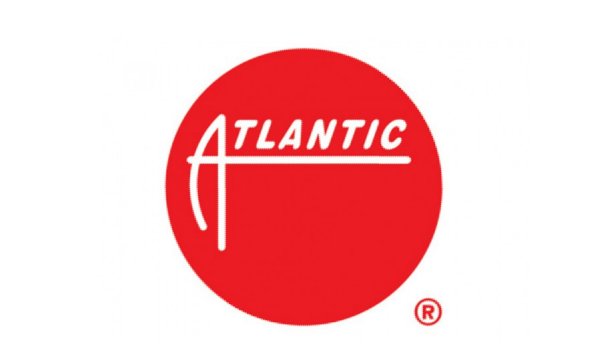After both an internal and criminal investigation, former Warner Music executive Danielle Smith appeared in a Manhattan court yesterday concerning charges of first-degree larceny for allegedly embezzling money from the company. Smith put in a plea of not guilty.
What exactly did she plead not guilty to? Well, she has been accused of charging over one million dollars to Warner's credit card for personal expenses and lavish items.
Smith was granted an expense card while working for Atlantic Records, a Division of Warner Music Group, in which her responsibilities included booking travel and hotel arrangements for potential talent. Although she wasn't considered talent, she reportedly racked up fees for hotel rooms, airfare, and products according to prosecutors. All this spending Smith was allegedly doing took place between 2007-2011, the same year Smith resigned.
Smith was accompanied to court by her lawyer Scott Leemon and her mother, who flew in with the accused from California.
If you’re a music lover, you may be shocked to learn that an Atlantic Records executive has recently been charged with embezzlement.
This scandal has sent shockwaves throughout the music industry, as it raises questions about trust and financial integrity within one of the biggest record labels in the world.
The allegations against this executive are serious, as they involve misappropriation of funds for personal gain.
The investigation into this matter has been thorough and extensive, leaving no stone unturned in uncovering the truth.
As a result, charges have now been filed, and the legal process will determine the outcome of this case.
With such high stakes involved, both for the accused individual and for Atlantic Records itself, this news is sure to have far-reaching implications for all parties involved.
The Allegations and Investigation
The allegations against the Atlantic Records executive, coupled with an ongoing investigation, have led to heightened scrutiny within the music industry.
It all started when a whistleblower came forward, claiming that the executive had been embezzling funds from the company for years. The allegations were shocking and sent shockwaves throughout the industry.
As news of the embezzlement charges spread, industry insiders began to question how such a breach could occur at one of the biggest record labels in the world. The executive in question was known for his lavish lifestyle and extravagant spending habits, but no one suspected that it was funded by illegal activities.
The investigation is still ongoing, and authorities are working tirelessly to uncover any additional evidence.
The fallout from these allegations has been significant. Atlantic Records has come under intense scrutiny for their lack of oversight and failure to detect this embezzlement scheme earlier. Other record labels are now taking steps to tighten their financial controls and prevent similar incidents from happening in the future.
As for the accused executive, if found guilty, he will not only face legal consequences but also a tarnished reputation that may be difficult to recover from in the cutthroat music industry.
Implications for Atlantic Records and the Music Industry
Imagine the impact on the music industry with such a scandal involving a high-ranking individual in charge of finances. The implications for Atlantic Records and the entire industry are significant.
First and foremost, this scandal calls into question the financial integrity of Atlantic Records as a whole. If an executive at such a prominent label can be accused of embezzlement, it raises concerns about how widespread this issue may be within the industry.
Secondly, this scandal could have serious repercussions for artists signed to Atlantic Records. Any mismanagement or siphoning off of funds by the accused executive could potentially affect royalty payments and artist contracts. Artists rely heavily on their record labels to handle their finances properly and ensure they receive fair compensation for their work. If trust is broken, it could lead to artists seeking alternative avenues or even legal action against the label.
Lastly, this scandal highlights the need for increased transparency and accountability within the music industry. It serves as a wake-up call for labels and executives to implement stricter financial controls and oversight mechanisms to prevent similar incidents from occurring in the future. By taking proactive measures to address these issues head-on, Atlantic Records can begin rebuilding trust with both its artists and fans while also setting an example for other labels in the industry.
Overall, the implications of an Atlantic Records executive being charged with embezzlement are far-reaching. From questioning financial integrity to potential impacts on artists’ livelihoods, this scandal has exposed vulnerabilities within both Atlantic Records and the wider music industry. However, by learning from this incident and implementing necessary changes, there’s an opportunity for growth and improvement moving forward.
Conclusion
So there you have it – the shocking news of an Atlantic Records executive being charged with embezzlement. It’s a story that has sent shockwaves through not only the music industry but also the business world as a whole.
The allegations and subsequent investigation have raised serious questions about the integrity and trustworthiness of those in positions of power within major record labels.
The implications for Atlantic Records are significant. This scandal threatens to tarnish their reputation and undermine the trust they have built with their artists, employees, and fans over the years. It calls into question their ability to effectively manage finances and protect the interests of those they represent. The fallout from this case could potentially lead to legal repercussions, financial losses, and damage to their brand image.
Moreover, this incident highlights a larger issue within the music industry itself. It serves as a stark reminder that even in an industry built on creativity and expression, corruption can find its way in. It raises concerns about how widespread such practices may be across various record labels and begs for increased scrutiny and accountability.
In conclusion, the charges against this Atlantic Records executive serve as a wake-up call for both the company and the music industry at large. They highlight the need for stronger internal controls, transparency, and ethical practices in order to prevent such incidents from occurring in the future. Only by addressing these issues head-on can we hope to rebuild trust within this dynamic field where collaboration should thrive rather than be marred by dishonesty.






